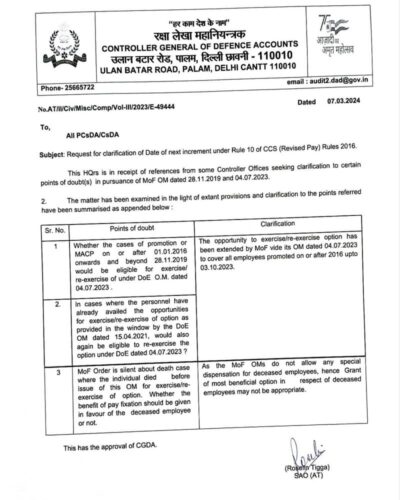46 years after hubby’s death, Odisha woman, 91, to get pensionCUTTACK: The Orissa high court has directed the Kendrapada district collector to pay family pension to a 91-year-old widow whose husband, a school teacher, died 46 years ago.A single judge bench of Justice Biraja Prasanna Satapathy issued the direction Wednesday in the case of Hara Sahoo, the wife of Benudhar Sahoo, who was an assistant teacher at Ratnakar Middle English School in Kasoti, when he died on August 26, 1977.The widow had filed several representations...
Read More ->>












